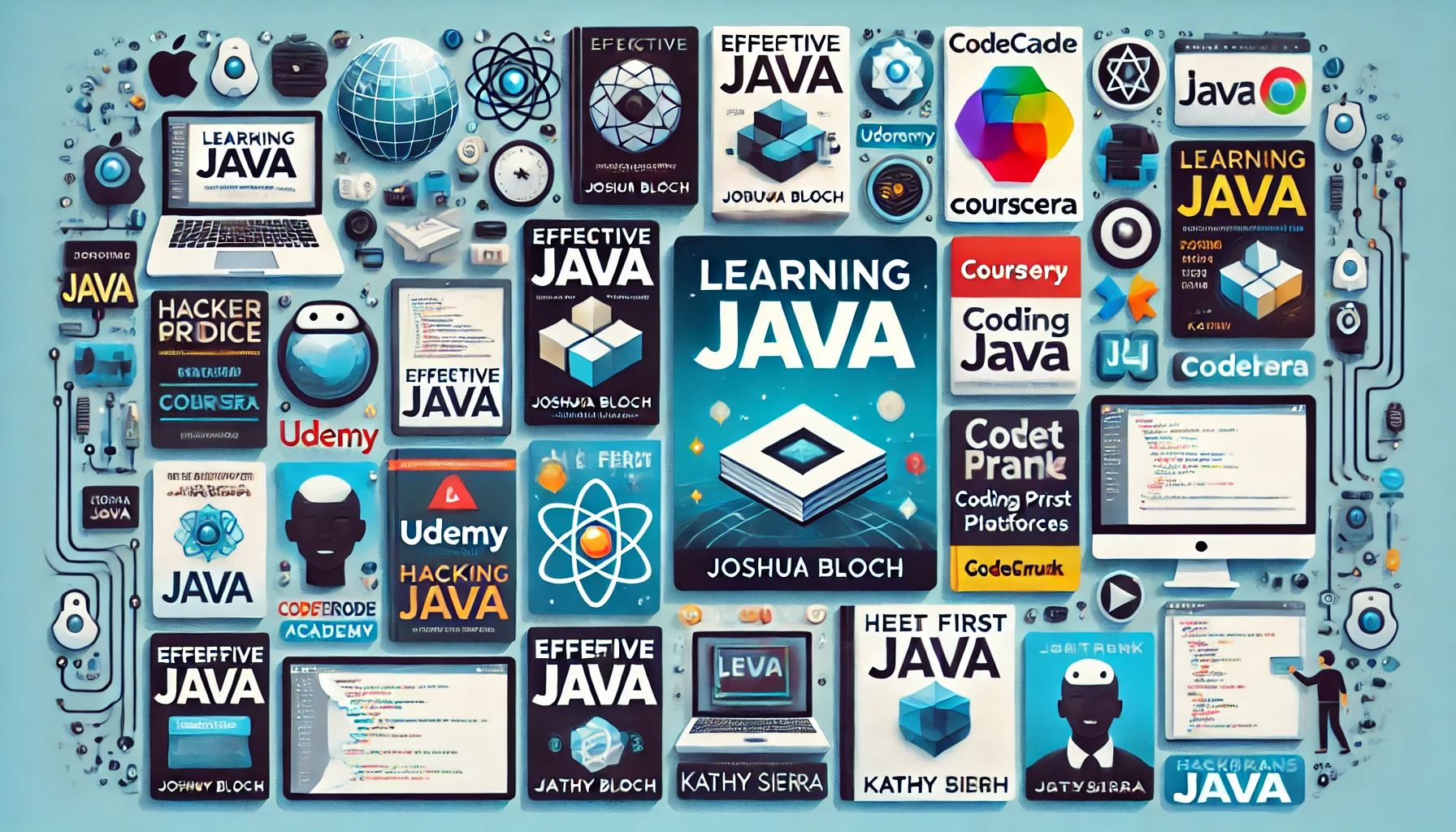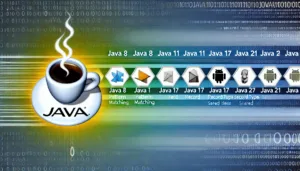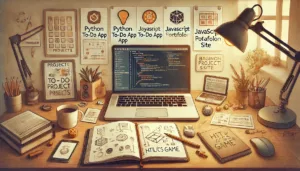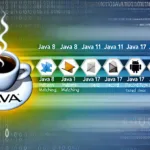Introduction
Java is a powerful, versatile programming language widely used in web development, enterprise applications, and Android development. However, when it comes to learning Java, the timeline can vary greatly depending on a range of factors, such as your prior experience, the level of proficiency you want to achieve, and the resources you choose. For some, mastering the basics might take just a few weeks, while others may take several months to reach a point of comfort.
This blog will delve into different learning stages—basic, intermediate, and advanced—and provide a detailed breakdown of the timeframes and resources needed for each stage. By setting clear expectations and understanding the factors that impact your learning journey, you can plan your path to becoming a Java developer more effectively.
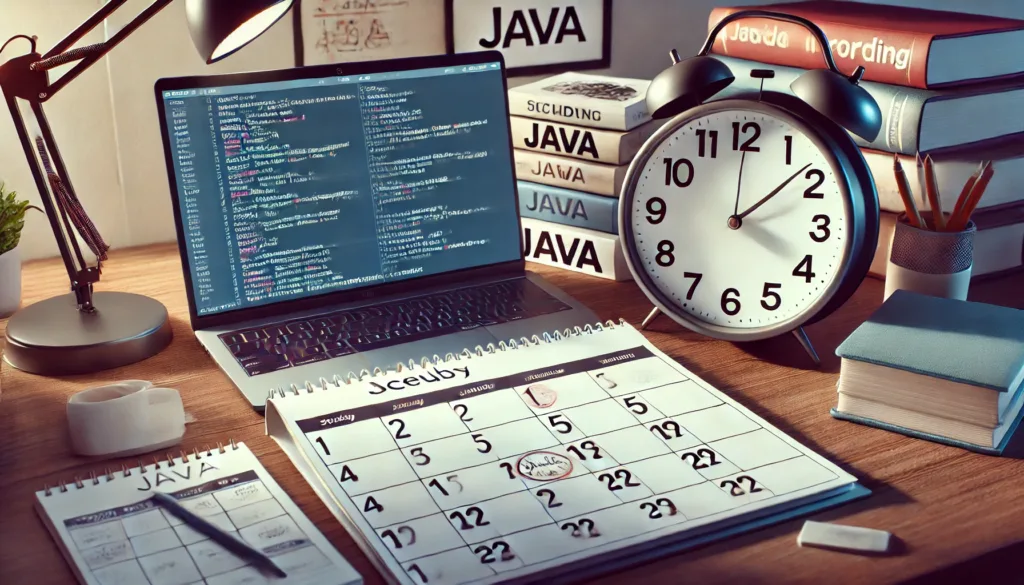
Factors Influencing the Time to Learn Java
The time it takes to learn Java is not a one-size-fits-all answer. Several key factors can shape your learning curve, including:
- Prior Programming Experience
If you already have experience with programming languages like Python or C++, you’ll likely find Java easier to pick up. Understanding core programming concepts such as variables, data structures, and loops will accelerate your learning. Conversely, if you are completely new to coding, you might need more time to build this foundational knowledge. - Time Dedicated to Learning
The amount of time you can consistently dedicate to learning Java plays a crucial role. Someone putting in 15 hours a week will progress faster than someone only spending 5 hours. Setting a regular study schedule and sticking to it will help solidify your understanding and skills. - Learning Goals
Are you aiming for basic proficiency, or do you want to master Java to build complex applications or contribute to large-scale projects? Your end goals will define your learning path. Basic proficiency can be achieved in a few months, while achieving an advanced skill set may take a year or more. - Quality and Type of Learning Resources
Choosing high-quality resources can make a significant difference. Interactive courses like those offered on Codecademy or Coursera can speed up your learning process, while in-depth books like “Effective Java“ provide deeper insights for advanced learners. Supplementing these with practice platforms like LeetCode and community engagement on GitHub can further enhance your understanding and skill level.
Understanding these factors will help you gauge your learning timeline and pick the best approach for your needs. Whether you’re a beginner or an experienced developer, adjusting your learning strategy according to these factors will set you up for success in mastering Java.
For more detailed guidance on selecting the best resources to learn Java, you can refer to various trusted sources such as Simplilearn, ComputerScience.org, Stackify, and MLTut.
Learning Stages and Expected Timeframes
If you are new at coding, you should check this article first so you can understand the basics here!
Basic Proficiency (1-3 Months)
Basic proficiency in Java focuses on building a solid foundation by understanding syntax, basic programming concepts, and being able to write simple programs. At this stage, you will learn how to set up a development environment, write and execute simple Java applications, and grasp core concepts like loops, conditionals, and basic data structures (arrays and lists).
Expected Learning Time:
With a consistent study schedule of around 10-15 hours per week, reaching basic proficiency can typically take between 1 to 3 months. However, this timeline can vary based on prior programming experience and the intensity of the learning sessions.
Suggested Resources for Basic Proficiency:
- Online Courses:
Platforms like Codecademy and Udemy offer beginner-friendly Java courses with interactive lessons and hands-on projects that reinforce concepts. - Books:
“Java: A Beginner’s Guide“ by Herbert Schildt is an excellent resource that covers the basics in a clear, structured manner, perfect for those starting out with Java.
Key Skills Covered:
- Java syntax and semantics.
- Loops and conditional statements.
- Basic data structures such as arrays and lists.
- Writing and understanding simple programs.
Intermediate Skills (3-6 Months)
Intermediate proficiency in Java involves building on the fundamentals to develop more complex applications and handle real-world scenarios. At this stage, you will delve into object-oriented programming (OOP), exception handling, and file I/O operations. Understanding and applying concepts like classes, inheritance, polymorphism, and interfaces will enable you to structure more efficient and scalable code.
Expected Learning Time:
To reach an intermediate level, it typically takes 3 to 6 months of consistent study and practice. This stage often requires not just learning new concepts but also engaging in coding challenges and small projects to internalize these skills.
Recommended Resources:
- Project-Based Courses:
Websites like Coursera and JetBrains Academy provide project-oriented courses that emphasize practical application through building real-world projects. - Coding Challenges:
Platforms like LeetCode and HackerRank are ideal for refining problem-solving skills using Java and solidifying your understanding of data structures and algorithms.
Key Skills Covered:
- Object-Oriented Programming (OOP) principles.
- Exception handling and debugging.
- File I/O operations.
- Understanding and using Java’s collections framework.
- Building small-scale projects and applications.
Advanced Proficiency (6-12 Months or More)
Advanced proficiency in Java involves mastering the language’s more sophisticated aspects and being capable of developing enterprise-level applications. This stage focuses on learning and using Java frameworks such as Spring and Hibernate, understanding design patterns, and gaining experience with real-world projects that involve complex architectures and multi-threading.
Expected Learning Time:
Achieving advanced proficiency can take 6 to 12 months or more, depending on your goals and dedication. To reach this level, it’s crucial to not only learn new topics but also contribute to open-source projects and build large-scale applications that mimic real-world use cases.
Suggested Resources:
- Frameworks and Project-Based Learning:
Framework-focused courses on platforms like Udemy or JetBrains Academy offer deep dives into Spring, Hibernate, and Java EE. - Books:
“Effective Java“ by Joshua Bloch is a must-read for anyone looking to master best practices and refine their skills further.
Key Skills Covered:
- Mastery of popular Java frameworks (Spring, Hibernate).
- Understanding design patterns and architectural principles.
- Multi-threading and concurrency.
- Contributing to open-source projects and engaging with the Java developer community.
- Developing complex, scalable, and high-performance applications.
For additional resources that align with these learning stages, consider browsing through the recommendations from Reddit’s Learn Java Community and LinkedIn’s curated list of websites to learn Java for free.
Recommended Resources for Learning Java
Choosing the right learning resources can make all the difference in your journey to mastering Java. Here’s a curated list of some of the best platforms and books, each tailored to fit different stages and learning preferences.
Online Courses
- Udemy:
Udemy offers a wide range of Java courses, covering everything from beginner to advanced topics. These courses often include hands-on projects and real-world examples, making it a versatile option for learners at any stage. - Coursera:
Known for its structured learning paths, Coursera features university-level courses that take you through Java systematically. Many of these courses also include graded assignments and peer feedback, ideal for those looking for a formal learning experience. - Codecademy:
Codecademy’s interactive lessons provide an engaging way to learn Java through hands-on coding practice. This platform is perfect for beginners as it allows you to write and test code directly in your browser, making it easy to grasp core concepts quickly.
Need more detail about online courses for programming? Check out this article and start now!
Books
- “Effective Java” by Joshua Bloch:
This book is a must-have for anyone aiming to become an advanced Java programmer. It dives deep into best practices and provides comprehensive guidance on topics like concurrency, generics, and object-oriented design, making it essential for mastering the language. - “Head First Java” by Kathy Sierra:
If you prefer a more engaging and visual approach to learning, Head First Java is an excellent choice. The book’s unique style uses puzzles, diagrams, and humor to explain core concepts, making it a fun read for both beginners and those wanting to strengthen their understanding.
Practice Platforms
- LeetCode & HackerRank:
These platforms are go-to resources for practicing coding problems and improving your problem-solving skills using Java. With thousands of challenges ranging from easy to hard, LeetCode and HackerRank are perfect for honing your skills and preparing for technical interviews. - GitHub:
GitHub isn’t just a place to store code—it’s a rich resource for exploring open-source projects written in Java. By contributing to these projects or even just browsing through them, you can gain valuable insights into how Java is used in real-world scenarios and collaborate with other developers.
Project-Based Learning Platforms
- JetBrains Academy:
JetBrains Academy stands out for its project-based approach, which allows you to learn Java by building real applications step-by-step. Each course is structured around completing projects that help reinforce new concepts and techniques, making it an excellent platform for practical, hands-on learning.
Need some project ideas to improve your Java skills fast? Check this article and start now!
With these resources, you can tailor your learning experience to match your goals and skill level, ensuring a well-rounded and comprehensive mastery of Java.
Setting Realistic Expectations
Learning Java is more than just memorizing syntax or passing coding tests—it’s a journey that requires patience, dedication, and persistence. While it’s easy to get overwhelmed by the scope of the language, setting small, achievable goals can make a huge difference. Celebrate each milestone, whether it’s mastering a concept like object-oriented programming or completing a small project. These small wins will keep you motivated and reinforce your progress.
Consistency is key to building proficiency. Even dedicating just a few hours each week can yield great results over time if you stick to a regular study schedule. Make sure to balance theoretical learning with practical application, as hands-on coding practice is essential for truly understanding the language. Remember, setbacks are part of the process—use them as learning opportunities rather than roadblocks. Keeping a positive mindset and embracing the challenges will ensure steady progress throughout your journey.
Conclusion
The time it takes to learn Java can vary significantly depending on your prior experience, learning objectives, and commitment level. For some, a few months of dedicated effort might be enough to build a strong foundation, while others may take a year or more to achieve advanced proficiency. Regardless of where you start, the key is to choose high-quality resources, set clear learning goals, and stay consistent.
By utilizing the right combination of courses, books, and project-based learning, you can tailor your learning journey to suit your needs. Engage with the Java community through platforms like GitHub, contribute to open-source projects, and challenge yourself regularly to build practical skills. With determination and the right mindset, mastering Java is within reach.
References
To create a well-rounded learning plan, it’s essential to use a diverse set of reliable resources. The following references were used to outline the timelines, stages, and recommended resources for learning Java:
- Simplilearn – Resources to Learn Java Programming
- ComputerScience.org – Resources for Learning Java
- Stackify – Java Tutorials and Resources
- MLTut – Best Resources to Learn Java
- JetBrains Blog – Best Ways to Learn Java
- W3Schools – Java Tutorials
- Reddit – Best Resources to Learn Java for Programmers
- LinkedIn – Top Websites to Learn Java for Free
These sources offer valuable insights, from structured courses and project-based learning to hands-on practice and community engagement, providing a solid foundation for anyone looking to master Java.
FAQs
- How long does it realistically take to learn Java from scratch?
The time varies based on your learning goals and dedication. For a complete beginner, it can take around 1-3 months to gain basic proficiency, 3-6 months for intermediate skills, and 6-12 months or more to master advanced topics. Consistent practice and project work are key to steady progress. - Is Java a good language for beginners?
Yes, Java is a great language for beginners due to its clear syntax and strong object-oriented programming principles. Although it may seem complex initially, mastering Java builds a solid foundation that makes learning other programming languages easier. - What should I focus on to become proficient in Java quickly?
Start by understanding core Java concepts such as variables, data structures, loops, and conditionals. From there, focus on object-oriented programming (OOP), as it’s crucial for building structured and reusable code. Regularly practice by building small projects and solving coding challenges. - Do I need to learn any frameworks to be job-ready in Java?
While learning Java alone is a good start, most Java developer roles require familiarity with frameworks like Spring and Hibernate. These frameworks simplify building large-scale applications and are highly sought after in enterprise-level development. - What’s the best way to practice Java after learning the basics?
After mastering the basics, engage in hands-on practice through coding platforms like LeetCode and HackerRank. Contribute to open-source projects on GitHub to understand how Java is used in real-world scenarios. Building your own small projects, like a simple game or a basic web application, is also a great way to apply your skills.


